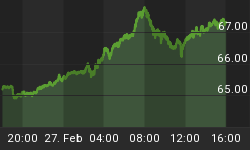As domestic political stability takes a nose-dive over unprecedented White House exits, the Russia probe intensifies, and foreign relations threaten to implode, the U.S. is experiencing its highest level of risk since Watergate.
While the markets haven’t flinched at the prospect of a nuclear North Korea or Middle East war rumblings, they are flinching at a U.S. domestic political economy that one analyst has likened to an emerging market.
And expectations of a Federal Reserve rate hike on Wednesday are adding more nervousness to the already intense anxiety.
And the risks continue to line up around the corner.
In what can only be described as a purge, the White House has dismissed five high-level people in just two weeks, including Secretary of State Rex Tillerson, National Economic Council Director Gary Cohn, Communications Director Hope Hicks, personal aide John McEntee and communications aide Josh Raffel. And now, rumors are that national security adviser General H.R. McMaster may be the next to be forced out.
No one’s sure how long Gary Cohn’s replacement, Larry Kudlow, will last, either: He’s a free-trade believer and may not follow the protectionist line expected of him, according to former diplomat Edward Harrison.
On the foreign policy scene, the Iran nuclear deal is up in the air and talks are upcoming between Trump and North Korea--and there is every reason to feel anxious. Meanwhile, the UK has raised the stakes with Russia after the poisoning of a former Russian spy. The White House was slow to join the UK on the offensive here, and Putin—fresh from a Sunday re-election victory—will maintain the advantage.
The elephant in the room is the Russia probe, led by special counsel Robert Mueller. By now, it’s gone beyond the level of threats and is hijacking the bulk of mainstream media headlines, as the president becomes increasingly aggressive.
Now, hefty steel and aluminum tariffs have scores of American industries up in arms, and many worried that even if it doesn’t result in a full-blow trade war, the protectionist policy will have a detrimental effect on the U.S. economy.
The “Mueller Risk Index”, developed by quantitative research firm GeoQuant, co-founded by Mark Rosenberg, focuses on the Russia probe of special counsel Mueller and the prospects of impeachment as the biggest political risk.
The index tracks the perception of political risk, much like the VIX tracks volatility. Related: How Low Can Bitcoin Go?
The index launched only on 2 March, but has been rising steadily, with Rosenberg saying that the “most appropriate comparison would be Watergate”.
But Rosenberg also sees the high level of risk in this case as a boost for the dollar.
“The stock market loves Trump and the dollar hates him,” Rosenberg says, but as the index risk level rises and the Trump administration becomes more unstable we are likely to see a noticeable downturn in the stock market, while the dollar will benefit.
Tracking the dollar with the Mueller index looks like this:

(Click to enlarge)
And here’s what the S&P 500 looks like tracked along with the Mueller risk:

(Click to enlarge)
The Mueller Risk Index doesn’t even account for the White House purge or the looming geopolitical uncertainty—nor does it account for anxiety over interest rate hikes by the Fed, which is heading into a two-day meeting this week that will very like result in higher interest rates.
By Fred Dunkley for Safehaven.com
More Top Reads From Safehaven.com:
















